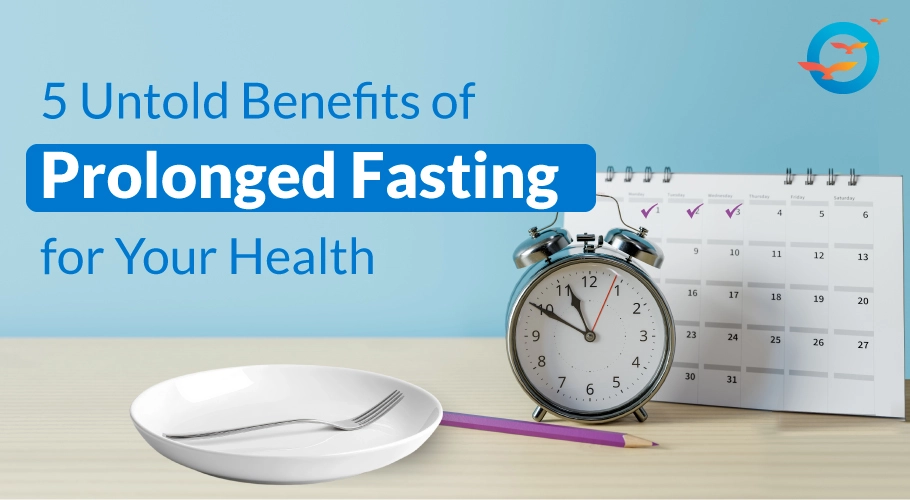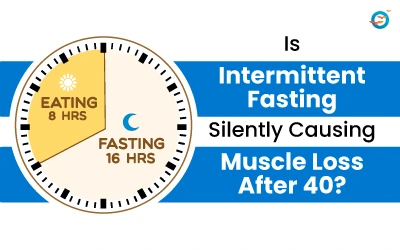5 Untold Benefits of Prolonged Fasting for Your Health

Walking into the world of health trends, you’ve likely heard about intermittent fasting. But there’s a deeper, more powerful approach to prolonged fasting. Unlike short fasting windows, this method (3–7+ days) taps into the body’s innate ability to heal, detox, and regenerate. The prolonged fasting benefits go far beyond weight loss they reach into cellular repair, immune reset, and even longevity. Here’s what science reveals about this ancient yet modern practice.
What is Prolonged Fasting and Why Is It Different?
Prolonged fasting involves extended periods without food, usually over 72 hours, where the body shifts from using glucose to using fat and ketones for energy. Unlike intermittent fasting, this deeper fasting state activates advanced repair mechanisms, autophagy (cellular recycling), hormonal balance, and even stem cell production. According to Nature Reviews Endocrinology, prolonged fasting has been linked to improved metabolic health, reduced inflammation, and better disease prevention.
5 Untold Benefits of Prolonged Fasting
1. Cellular Cleansing through Autophagy
One of the most fascinating benefits of prolonged fasting is the activation of autophagy. As described in Nature and work by Nobel laureate Yoshinori Ohsumi, autophagy removes damaged cells, proteins, and toxins, helping your body “clean house.” This reduces oxidative stress, which is a known contributor to diabetes, obesity, and premature aging.
2. Immune System Reset
Research by Dr. Valter Longo (University of Southern California) shows that prolonged fasting stimulates stem cells to regenerate new white blood cells. Old or inefficient immune cells are cleared out, creating a “reset” effect that strengthens immunity after the fast.
3. Better Blood Sugar and Insulin Sensitivity
For people with prediabetes or type 2 diabetes, prolonged fasting for better health can help stabilize glucose. Studies in The New England Journal of Medicine show reductions in fasting glucose, improved insulin signaling, and even lower HbA1c levels in supervised settings.
4. Gut Rest and Microbiome Balance
Fasting gives your digestive system time to rest and repair. According to a 2021 study in Cell Reports, prolonged fasting promotes healthy gut bacteria diversity, reduces intestinal inflammation, and may improve digestion once normal eating resumes.
5. Longevity and Anti-Aging Effects
By activating longevity pathways like AMPK and SIRT1 and lowering mTOR activity, prolonged fasting may slow biological aging. Research from Science Translational Medicine suggests that periodic fasting can support longer, healthier lifespans.
Who Should Avoid Prolonged Fasting?
Despite its promise, prolonged fasting isn’t for everyone. Those who are pregnant, breastfeeding, underweight, have severe diabetes, or take certain medications should not attempt it without medical supervision. Gradual refeeding is equally crucial to avoid refeeding syndrome.
The Bottom Line
Prolonged fasting isn’t about deprivation, it’s about restoration. From cellular repair and immune renewal to better blood sugar balance, the health benefits of prolonged fasting are backed by growing science. Start small, seek professional guidance, and when you’re ready, explore this powerful tool as a path toward deep, natural healing.
Learn how prolonged fasting can work as a Metabolic Reset for Diabetes, Obesity & Hypertension,
FAQs
1. What are the benefits of prolonged fasting?
It triggers autophagy, boosts immunity, balances blood sugar, improves gut health, and may promote longevity.
2. How long should a prolonged fast be for health benefits?
Generally, 3–7 days under medical supervision is recommended for most healthy adults.
3. Is prolonged water fasting safe for everyone?
No, it’s not advised for pregnant women, children, or those with chronic conditions without guidance.
4. Can prolonged fasting support longevity and anti-aging?
Yes, by activating cellular repair and slowing aging pathways like mTOR.
5. Does prolonged fasting improve insulin sensitivity?
Yes, research shows it enhances how your body responds to insulin.
6. Who should avoid prolonged fasting?
Those with eating disorders, severe chronic illness, or uncontrolled diabetes should not attempt it.

